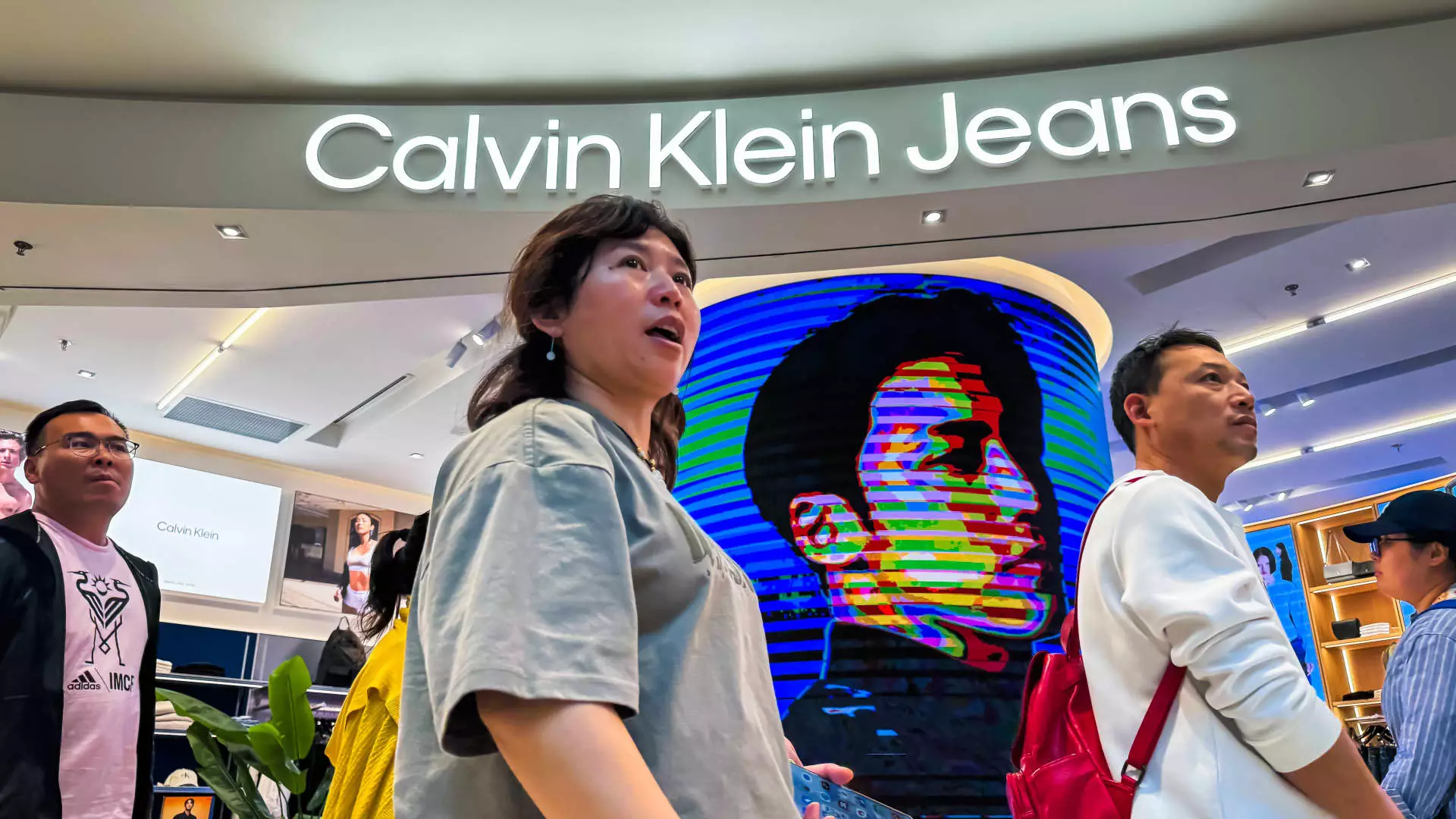The ongoing trade tensions between the United States and China have resulted in significant economic undercurrents that affect numerous global corporations. One notable victim of this turbulent climate is the American retail giant PVH Corp, a company known for its ownership of renowned brands like Calvin Klein and Tommy Hilfiger. In a striking move, the Chinese government has placed PVH on its “unreliable entities” list, a decision that could seal the company’s fate in one of the world’s most lucrative markets. This article delves into the implications of this development and examines how PVH’s predicament is emblematic of a broader pattern in international trade relations.
The Mechanism of Blacklisting
The addition of PVH Corp to China’s unreliable entities list enables the Chinese government to wield significant power over the retail giant. Such measures include imposing fines, barring import and export operations, and even voiding work permits for employees. The blacklisting is particularly consequential in the context of the company’s operations, as it may lead to the closure of PVH’s local stores and disrupt its manufacturing processes. Given PVH’s extensive presence in the Chinese market, the repercussions of this move could be disastrous.
This action stems from an investigation that began in September, wherein PVH allegedly declined to source cotton from the Xinjiang region, a place notorious for human rights abuses involving Uyghur populations. Such a refusal has put the company squarely in the crosshairs of Chinese authorities, underscoring the complex intersection between corporate ethics and geopolitics.
The timing of China’s decision is not insignificant, arriving just days after the Trump administration imposed a 10% tariff on Chinese goods. This move is reflective of a tit-for-tat strategy that characterizes Sino-American trade relations. Experts claim that such retaliatory actions serve to underline China’s willingness to leverage its economic relationships in response to perceived provocation from the U.S.
Michael Kaye, a seasoned international trade lawyer, has articulated that this blacklisting is meant to demonstrate China’s ability to inflict harm on significant U.S. entities. PVH stands as an example of a high-visibility target, illustrating the lengths to which China will go in order to assert its economic power and influence.
With its presence in China accounting for a considerable percentage of PVH’s earnings and manufacturing capabilities, the company is now flirting with severe operational risk. The potential for the Chinese government to impose restrictions could lead to the cessation of sales in the region, jeopardizing years of brand loyalty and consumer engagement. Furthermore, PVH’s manufacturing networks heavily rely on Chinese factories, making a swift transition to other sourcing locations both logistically and technically challenging.
Retail analyst Neil Saunders noted that while PVH may eventually realign its manufacturing efforts in other nations, the immediate fallout could disrupt supply chains, leading to inventory shortages and increased costs. The high-quality apparel made by PVH necessitates specialized labor and manufacturing processes that may not be readily available in other countries, raising questions about the sustainability of alternative sourcing arrangements.
PVH’s position in the Chinese market, which it has nurtured for over two decades, may require a complete reevaluation in light of the ongoing geopolitical landscape. The company’s strategy going forward must meticulously consider the implications of the unreliable entities list and develop contingency plans that allow it to mitigate risk while also exploring growth opportunities in other markets.
China is not just a significant revenue source; it represents a key aspect of PVH’s future growth narrative. Therefore, if punitive measures escalate, the company faces the dual challenge of maintaining quality and efficiency while navigating a fraught political environment. Experts suggest that proactive engagement with Chinese authorities may be essential to transforming the current adversarial relationship into a more cooperative dialogue for future business dealings.
The case of PVH Corp serves as a stark reminder of the precarious nature of global commerce in an era dominated by trade wars and nationalistic policies. As the company faces potential ostracization from one of its most important markets, the situation unfolds as a cautionary tale for other multinational firms that operate within the uncertain waters of international trade dynamics. It highlights the importance of not only adapting to shifting economic landscapes but also of maintaining ethical standards amid potential geopolitical confrontations. The PVH saga is far from over, and its implications could reverberate through the corporate world, influencing decisions to come in the age of globalization challenged by national interests.

